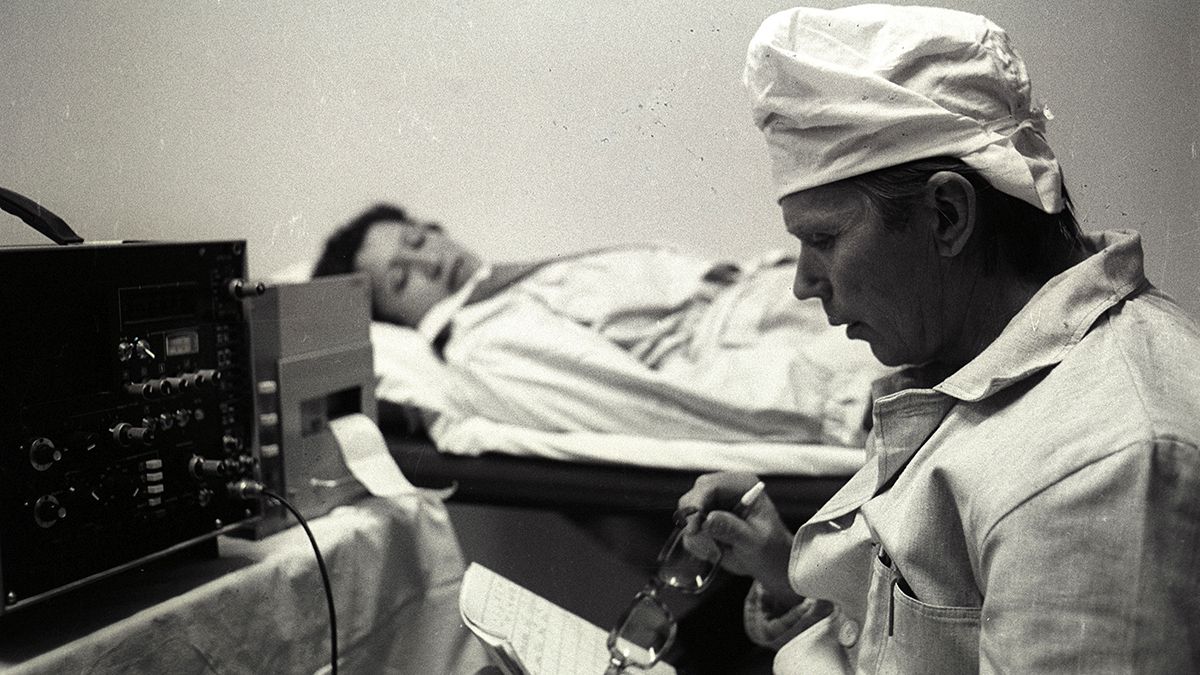On the 30th anniversary of the Chernobyl disaster Euronews has talked to one of the world’s leading experts on radiation-related health issues
On the 30th anniversary of the Chernobyl disaster Euronews has talked to one of the world’s leading experts on radiation-related health issues.
Professor Robert Gale has been coordinating international medical relief efforts in the aftermath of many accidents and disasters including Chernobyl and Fukushima.
Euronews:
“Professor Gale when you first arrived in the Soviet Union a few days after the Chernobyl explosion, you met the leadership of the country including President Mikhail Gorbachev. Were you given the full information available at the time about the scale of the disaster, because the majority of the population both in the country and the outside world were kept in the dark?” ### Prof Robert Gale:
“Well, I think I had a pretty reasonable handle, but of course when I first arrived, all of my attention was on the most severely affected people who were flown to Moscow, and I didn’t get a complete appreciation till we flew down to Ukraine a few days later.” ### Euronews:
“What’s your assessment of the medical response with regard to general population in the affected areas, was it adequate?” ### Prof Robert Gale:
“Well, I think we would’ve liked to have done certain things better. I think the evacuation of Pryryat was affected quickly, that was good. Evacuation of certain other areas was delayed, and I think from a medical point of view the most serious problem we faced was that we couldn’t quarantine all of the food that should’ve been quarantined, and we couldn’t distribute iodine tablets, so we wound up with a number – several thousand – young people who developed thyroid cancer, and that is something we were successful in after Fukushima, for example.” ### Euronews:
“A few months later when many people were trying to leave affected areas or at least to evacuate their children you arrived at Kyiv with your wife and children as if to show that there was no need to panic and it was safe. It probably was safe to be there for a few days, but it must have been a different story for people left behind?” ### Prof Robert Gale:
“The point of my coming there with my family was to prevent the unplanned evacuation with people crowding in to the stations and so forth. So that we could sensibly plan the movement of people and avoid any kind of catastrophe. That’s what we try to do in case of nuclear accident – we try to make reasoned evacuations, making sure that where people go they’re not lost from medical contact. ### Euronews:
“Thirty-one deaths from acute radiation sickness were directly linked to the Chernobyl disaster in the immediate aftermath. But what’s your assessment of the potential number of victims due to long-term effects of radiation?” ### Prof Robert Gale:
“Well, if we focus just on radiation effects, not all of the problems we have – with people being displaced and psychological problems – there are two ways to approach this: one way is to take a very, very small risk that comes with radiation for most of the population but multiplied by millions of people. ‘If you do that you’d come out with some numbers, such as 12,000 cancers over 70 years. That has to be put in the context of what’s the background rate. Each of us has about a 50% chance of developing cancer, so the people that are affected (by radiation) perhaps instead of having 50% risk have a 50.1% risk. So it’s quite unfortunate, but it would in no way compare, for example, with cigarette smoking or drinking alcohol.
‘But we’ll never really know because this very very small increase in risk is not going to be detectable, except perhaps in the workers – the 100,000 workers – that helped mitigate the accident.”
